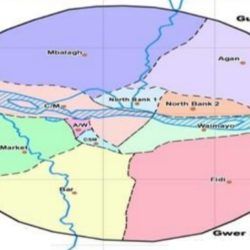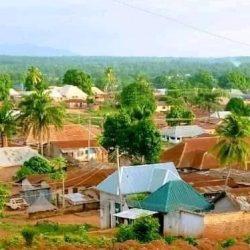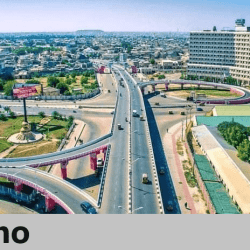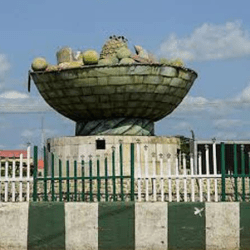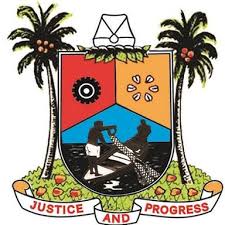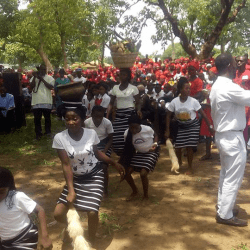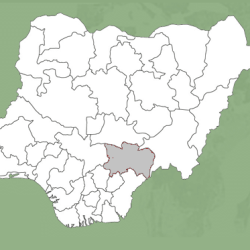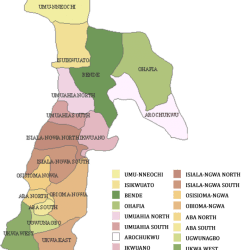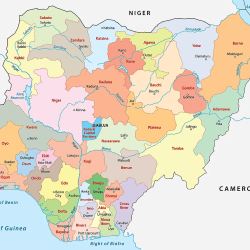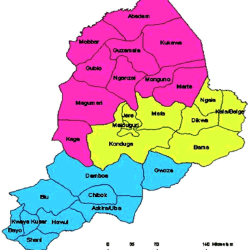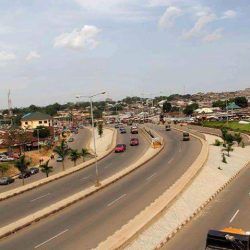Abuja has 6 Local Council Areas (Local Government Areas) and 62 council wards:
List of council wards in Abuja, the Federal Capital Territory
Abaji
List of council wards in Abaji, Abuja
The council wards in Abaji are:
Abaji Central
Abaji North East
Abaji South East
Alu Mamagi
Gawu
Gurdi
Nuku
Rimba Ebagi
Yaba
Agyana/Pandagi
Bwari
List of council wards in Bwari, Abuja
The council wards in Bwari are:
Bwari Central
Byazhin
Dutse
Igu
Kawu
Kubwa
Kuduru
Shere
Ushafa
Usuma
Gwagwalada
List of council wards in Gwagwalada
The council waerds in Gwagwalada are:
Dobi
Gwagwalada Central
Gwako
Ibwa
Ikwa
Kutunku
Paiko
Staff Quarters
Tunga Maje
Zuba
Kuje
List of council wards in Kuje, Abuja
The council wards in Kuje are
Chibiri
Gaube
Gudunkariya
Gwargwada
Kabi
Kuje Central
Kujekwa
Kwaku
Rubochi
Yenche
Kwali
List of council wards in Kwali, Abuja
The council wards in Kwali are:
Ashara
Dafa
Gumbo
Kilankwa
Kundu
Kwali Central
Pai
Yangoji
Yebu
Wako
Municipal
List of council wards in Municipal, Abuja
The council wards in Municipal are:
City Centre
Garki
Gui
Gwagwa
Gwarinpa
Jiwa
Kabusa
Karshi
Karu
Nyanya
Orozo
Wuse
List of council wards by Local Government Area in Abuja
| LGA | COUNCIL WARD |
| ABAJI | ABAJI CENTRAL |
| ABAJI NORTH EAST | |
| ABAJI SOUTH EAST | |
| ALU MAMAGI | |
| GAWU | |
| GURDI | |
| NUKU | |
| RIMBA EBAGI | |
| YABA | |
| AGYANA/PANDAGI | |
| BWARI | BWARI CENTRAL |
| BYAZHIN | |
| DUTSE | |
| IGU | |
| KAWU | |
| KUBWA | |
| KUDURU | |
| SHERE | |
| USHAFA | |
| USUMA | |
| GWAGWALADA | DOBI |
| GWAGWALADA CENTRAL | |
| GWAKO | |
| IBWA | |
| IKWA | |
| KUTUNKU | |
| PAIKO | |
| STAFF QUARTERS | |
| TUNGA MAJE | |
| ZUBA | |
| KUJE | CHIBIRI |
| GAUBE | |
| GUDUNKARIYA | |
| GWARGWADA | |
| KABI | |
| KUJE CENTRAL | |
| KUJEKWA | |
| KWAKU | |
| RUBOCHI | |
| YENCHE | |
| KWALI | ASHARA |
| DAFA | |
| GUMBO | |
| KILANKWA | |
| KUNDU | |
| KWALI CENTRAL | |
| PAI | |
| YANGOJI | |
| YEBU | |
| WAKO | |
| MUNICIPAL | CITY CENTRE |
| GARKI | |
| GUI | |
| GWAGWA | |
| GWARINPA | |
| JIWA | |
| KABUSA | |
| KARSHI | |
| KARU | |
| NYANYA | |
| OROZO | |
| WUSE |
Council Wards in Abuja
Abuja, the Federal Capital Territory (FCT) of Nigeria, serves as the nation’s capital and the seat of the Nigerian government. It is centrally located within the country, covering an area of about 8,000 square kilometers. Abuja is home to various ethnic groups, with a population that has grown significantly over the past few decades due to its status as the political and administrative center of Nigeria.
Unlike other states in Nigeria, which are divided into Local Government Areas (LGAs), Abuja is divided into six Area Councils that manage governance at the local level. These Area Councils are further subdivided into smaller administrative units called council wards, which form the foundation of local governance in the FCT. This article explores the structure, distribution, and role of council wards in Abuja’s governance system.
Administrative Structure of Abuja
The governance structure of Abuja is unique compared to other Nigerian states. As the Federal Capital Territory, it is directly administered by the federal government, under the supervision of the Federal Capital Territory Administration (FCTA), which is headed by the Minister of the FCT. However, for purposes of local governance, Abuja is divided into six Area Councils:
- Abaji Area Council
- Bwari Area Council
- Gwagwalada Area Council
- Kuje Area Council
- Kwali Area Council
- Municipal Area Council (AMAC)
Each Area Council functions similarly to the Local Government Areas found in other parts of Nigeria, providing local services such as healthcare, education, and infrastructure maintenance. The council wards, which are subdivisions within these Area Councils, serve as constituencies for local elections and are essential in community representation.
Distribution of Council Wards in Abuja
Abuja has a total of 62 council wards, which are distributed across the six Area Councils. The number of wards in each council varies depending on the size, population, and urbanization of the Area Council. Below is a breakdown of the number of wards in each Area Council:
- Abaji Area Council: 10 wards
- Bwari Area Council: 10 wards
- Gwagwalada Area Council: 12 wards
- Kuje Area Council: 10 wards
- Kwali Area Council: 10 wards
- Municipal Area Council (AMAC): 15 wards
This distribution ensures that every community within the FCT is represented at the Area Council level, allowing for local governance and participation in elections.

Largest Area Councils by Number of Wards
The Municipal Area Council (AMAC), which covers the central city of Abuja, has the largest number of wards (15) due to its dense population and urbanized environment. As the administrative and commercial center of the FCT, AMAC includes neighborhoods such as Garki, Wuse, and Maitama, which require more wards to manage local governance effectively.
Smallest Area Councils by Number of Wards
The **Kwali, Kuje, Abaji, and Bwari
The Role of Council Wards in Abuja
Council wards are fundamental to the governance of Abuja’s Area Councils, serving as electoral units that ensure grassroots participation in local decision-making processes. Each ward elects a councilor, who represents the ward’s interests in the Area Council’s legislative body. Council wards are the most direct link between the residents and the local government, ensuring that every community has a voice in the governance of their Area Council.
In addition to local governance, council wards are also crucial in organizing and conducting elections at both the state and national levels. During elections, the residents of each ward vote at designated polling units, and the results from these wards contribute to the overall election outcomes.

Breakdown of Abuja’s Area Councils
Abuja’s six Area Councils vary in terms of size, population, and geographic characteristics. Each of these councils is further subdivided into council wards, which serve as the smallest administrative units for governance and elections. Here’s a brief overview of the Area Councils:
- Abaji Area Council: Located towards the southwest of the FCT, Abaji is a semi-rural council with a mix of agrarian and administrative responsibilities.
- Bwari Area Council: This council covers areas that include Bwari town, which has become a significant educational hub, home to institutions like the Nigerian Law School.
- Gwagwalada Area Council: Located in the western part of Abuja, Gwagwalada is known for its expanding urban development and is home to the University of Abuja.
- Kuje Area Council: A largely rural area, Kuje is known for its agricultural activities and growing residential developments.
- Kwali Area Council: Like Kuje, Kwali is predominantly rural and focused on agriculture, but it also has a growing urban center.
- Municipal Area Council (AMAC): AMAC is the most urbanized of the Area Councils, encompassing the central city of Abuja and its surrounding neighborhoods.
Each of these Area Councils manages its governance through a series of council wards, allowing for localized representation and management of community-specific issues.
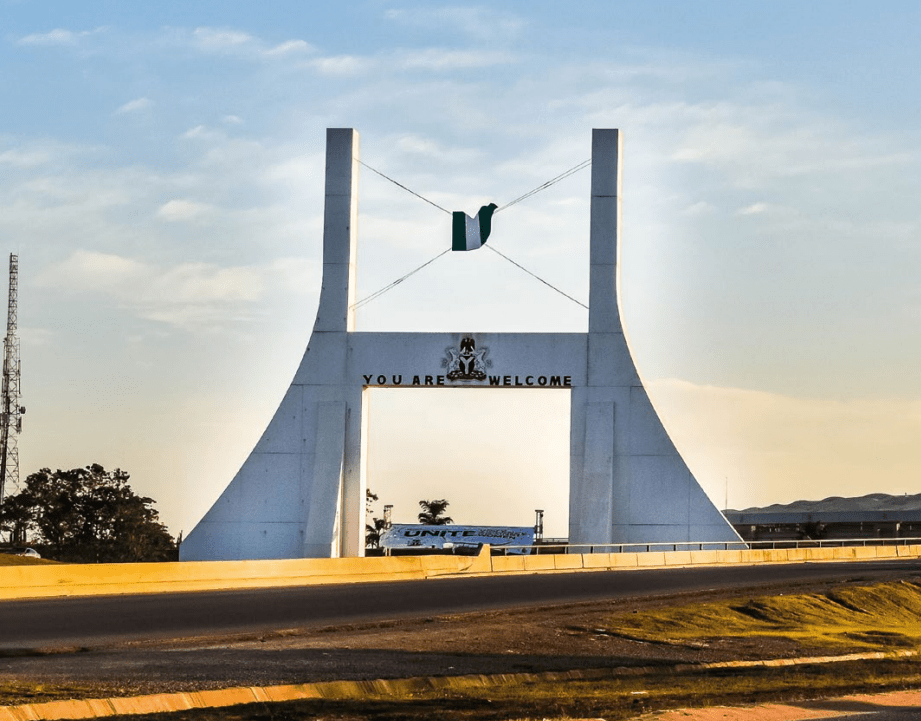
Abuja has 93 districts, 5 phases, 22 sector centres, 3 industrial areas, an institutional research district, 2 central area districts and a national park
Abuja city consists of about ninety-three (93) districts in the five phases, with twenty-two (22) Sector Centres, three (3) Industrial Areas, an Institution Research District as well as two (2) Central Area Districts and a National Park at Kukwaba.
The current District Design Status in the five phases of the FCC are as follows:


